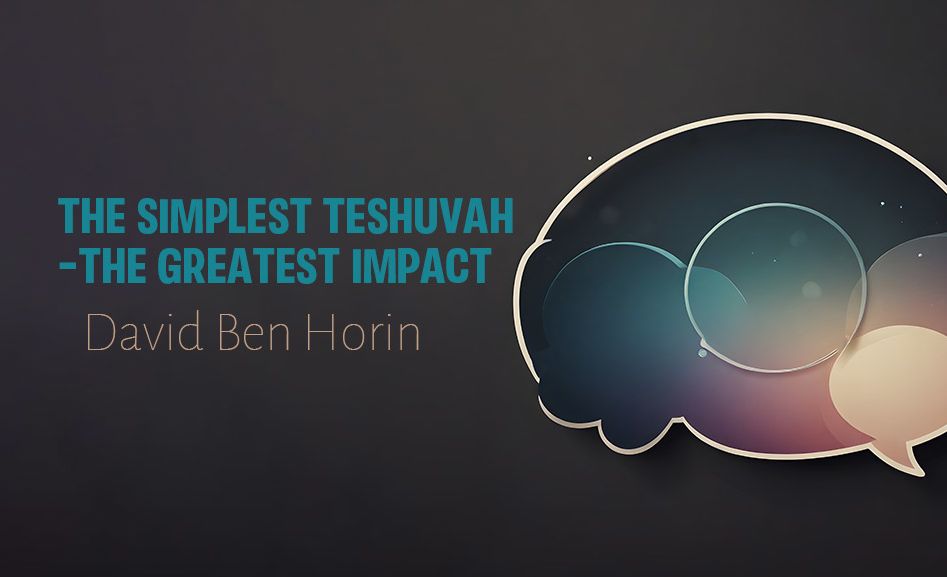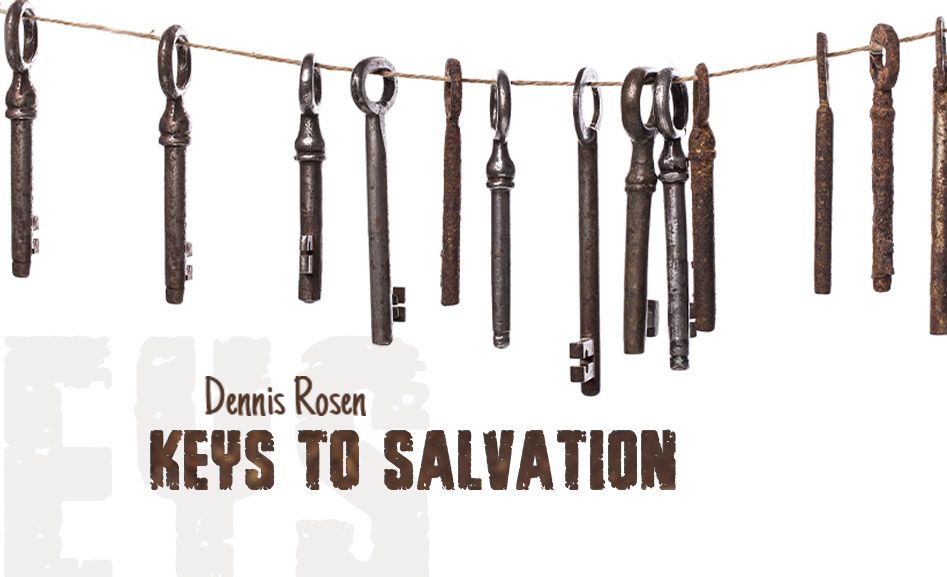
Everything Has Its Hour
Everyone knows that unripe fruit is not only bitter, it causes stomach aches. When people try to forcibly seal a deal or make money before the time...

Everyone knows that unripe fruit is not only bitter, it causes stomach aches. When people try to forcibly seal a deal or make money before the time and circumstances are ripe, they also suffer.
A merchant with emuna needs to know that every article in his or her inventory is under the influence of absolute Divine providence. Hashem decides when a certain object – whether a twenty-room mansion or tube of toothpaste – is sold, to whom, and at what price. According to Kabbalistic thought, each object has spiritual sparks of holiness that belong or gravitate to a certain soul; that soul will ultimately acquire the object, as a soul correction both for the object and for itself. Elaborating on this concept, Rebbe Nachman of Breslov writes (Likutei Moharan I:52) that everything has its hour, when it ultimately returns to its spiritual root.
For example, if the sparks of holiness in a particular carrot are rooted in the soul of a tzaddik, the tzaddik’s wife will eventually go to a certain vegetable stand on a certain day and pay a certain price for a certain pound of carrots. She’ll then come home and feed her husband the certain carrot whose spiritual sparks are rooted in the tzaddik’s soul. Once the tzaddik makes a blessing over the carrot and eats it, the carrot attains a lofty spiritual correction. In the case of a carrot or another foodstuff, it physically becomes a part of the tzaddik!
In light of the above example (which is none other than a drop of water from a vast sea, for the subject of soul corrections necessitates an entire volume in itself), any business deal – barter, trade, purchase, or sale – occurs only when and where Hashem decides. When the time is ripe for a certain commodity or piece of merchandise to reach the domain of a particular soul, the transaction is completed – not before and not after. To facilitate our understanding, let’s see an additional example:
Suppose that certain inanimate objects, such as a certain tiny nuts, bolts and screws, must attain their soul correction[1] by way of Benjamin. When the time comes for those objects to be corrected, or to elevate their spiritual status, they became parts of a watch. Hashem gives Benjamin the desire and the wherewithal to purchase a new watch; this particular watch is the exact model he wants at the exact price in the store of his choice. No one else will be able to obtain the watch, unless it’s destined to be a gift for Benjamin. Either way, Benjamin and the watch come together. The watch now helps Benjamin wake up in time to pray, to reach the synagogue on time, or to perform any number of other mitzvoth. As such, the watch attains its soul correction by way of Benjamin.
If a purchaser and an object don’t have a spiritual common denominator, they won’t come together at any price or under any circumstance. Therefore, it’s senseless for a pushy salesman or overpowering merchant to try and force something on a customer that he or she doesn’t want.
Many businesspeople have related stories about seemingly useless merchandise that they sold at a tremendous profit, or about products that they thought would be best sellers that ended up collecting dust on the shelves. Realtors have all experienced prospective buyers that turn their noses up at a certain house or piece of property, and three months later end up purchasing the very same piece of real estate. Every field has its own examples of divine providence. Everything has its hour.
Negotiating in faith
The Talmud teaches (tractate Shabbat 31a) that the very first question the heavenly court asks a person when he or she leaves this world is, "Did you negotiate in faith?" Those who incorporate emuna in all of their dealings will be able to answer a proud "Yes!"
Emuna in business means that a person is fair, honest, and sticks to his or her word. With emuna that livelihood comes from Hashem, a person need not resort to criminal or immoral means in acquiring money.
A merchant with emuna doesn’t make untrue claims about his goods, for he knows that the right buyer will come along and pay the right price at the right time for a particular item. He neither pressures nor flatters a prospective customer, for he knows that livelihood comes from Hashem, and not from the customer. Nevertheless, he is polite and respectful to the customer, for that is also Hashem’s will. He doesn’t try to force a sale, for he knows the customer will ultimately regret, complain, or return the purchase, or even give the merchant and his business a bad name and reputation. A merchant or businessperson without emuna – when forcing a deal – always becomes a loser in the long term.
Nothing frightens a businessperson with emuna. He or she isn’t disappointed when a prospective customer walks away. With emuna, one knows that if profit doesn’t materialize from transaction A, then it’ll materialize from transaction B. People frequently attain money by means that have nothing to do with their field of endeavor; we’ve all heard stories such as the not-so-successful dentist that made a lot of money on the stock market or the all-too-plain housewife that turned a good idea into a thriving on-line business.
A businessperson with emuna is not only guaranteed a pleasant, worry-free life in this world; his or her integrity and emuna earn a lofty place in the world to come. People with emuna don’t go around lying, cheating, and damaging other people, and are therefore spared from untold anguish in both worlds.
On the other side of the coin, a businessperson that lacks emuna thinks that his or her livelihood depends on the customer. Such a person believes that money and success depend on his or her own acumen, and therefore will readily stretch the truth or compromise their principles in their exaggerated efforts to make a living. They often make promises they can’t keep or slander their competitors, violating the Torah’s ordnance of wholesome speech. Inadvertently, they accumulate a long list of spiritual debits that leads to suffering in both worlds.
Businesspeople or other professionals that lack emuna are almost always plagued by arrogance and an inflated ego. When Hashem grants them success, they pat themselves on the back or protrude their chests in self-importance telling themselves how clever, wonderful, and talented they are. When they attain more money than they deserve by deviating from realm of integrity and fairness, they pride themselves in their ability to "make" money. But, money made in such a matter will ultimately sour. Dishonest money is poison, both spiritually and materially.
Have you ever seen an arrogant person fail to complete the transaction that he or she wanted to complete? Some vent their frustrations in curses and complaints; others eat themselves up inside. Heaven only knows the amount of strokes, heart attacks, ulcers, and emotional instability that stem from a simple lack of emuna.
The choice
Apparently, there’s room for confusion; we frequently see successful businesspeople that couldn’t care less about emuna. Furthermore, many of them are hard-hitting wheelers and dealers that you wouldn’t want to buy a used car from. Yet, they succeed in selling ice to the Eskimos or pulling off any number of legendary deals by virtue of their powers of persuasion or fast talking. Where’s the divine providence? We all know that so-and-so made millions from crime, graft, or corruption, laughs all the way to the bank, and basks in the Bermuda sunshine this very minute. What’s going on here? Where’s Hashem?
Our sages provide the answer: Hashem gives free choice to a person to do good or evil. Suppose that Hashem would send a bolt of lighting from heaven to strike down a person every time he or she lied, or sent a ten-thousand dollar check to a person every time he or she told the truth. Soon, no one would lie and everyone would tell the truth, but that’s not free choice – it’s coercion! A system of rewards and punishments makes no sense outside the context of free choice. Therefore, Hashem conceals His divine providence in order to leave people the free choice to do good or evil.
When people choose the path of emuna, their livelihood reaches them effortlessly, honestly, and without knocking their brains out or flattering others. But, if they choose the path of arrogance and lack of faith, then Hashem will allow them to believe that they are controlling their own destiny. In actuality, they receive exactly what Hashem intends for them to receive. Often, a dishonest businessperson is the mere "stick" in Hashem’s hands that steals from or cheats a person that has been destined to suffer a loss. Hashem enables people with severe spiritual debits to serve as the executors of a bad decree; nevertheless, such executors will be ultimately punished.
Wait until the time is ripe
Everyone knows that unripe fruit is not only bitter, it causes stomach aches. When people try to forcibly seal a deal or make money before the time and circumstances are ripe, they also suffer.
Suppose that a merchant forcibly sells an item to a customer that doesn’t want it. Since the item is not intended for that particular customer, the customer won’t derive satisfaction or benefit from the item. For example, either it won’t function properly, or it will be ruined in the customer’s domain. The customer may file a complaint or lawsuit against the merchant, causing substantial grief and financial loss. As such, many losses can be traced to a lack of emuna.
Forcing the issue, or acquiring money by dishonest means, can sometimes lead to disastrous results for generations to come. Imagine that a person fraudulently acquires a lot of money; this money – in honest means – would have reached his hands and the hands of his descendants over the next three generations. But, since he has greedily swindled to acquire funds that are not yet "ripe" for picking, he has stripped the financial tree whose fruits were intended for the use of the swindler’s children, grandchildren, and great grandchildren. Three subsequent tragedies occur:
The swindler’s unripe funds will turn sour in his hands – either he will be taken from his money or his money will be taken from him.
The swindler’s children, grandchildren, and great grandchildren will likely suffer dire poverty or extreme financial problems.
The swindler will have to undergo excruciating soul corrections in the next world.
Remember the following golden rule: What is yours will reach you in good time. You don’t have to forcibly grab that which is intended for you anyway. When you believe that Hashem will provide for you, then your life will be calm, pleasurable, and productive. If you think that your fate and livelihood is in your own hands, then life will be a hell on earth of strain, pressure, and disappointment strewn with untold obstacles, including the temptation to attain money by dishonest means. The choice is yours.
To be continued…
* * *
[1] Everything has spirituality, or "sparks of holiness" that are the essence of its soul, whether mineral, plant, animal, or man. Inanimate objects in turn have a basic soul that consists of its particular sparks of holiness, without which it cannot exist.












Tell us what you think!
Thank you for your comment!
It will be published after approval by the Editor.